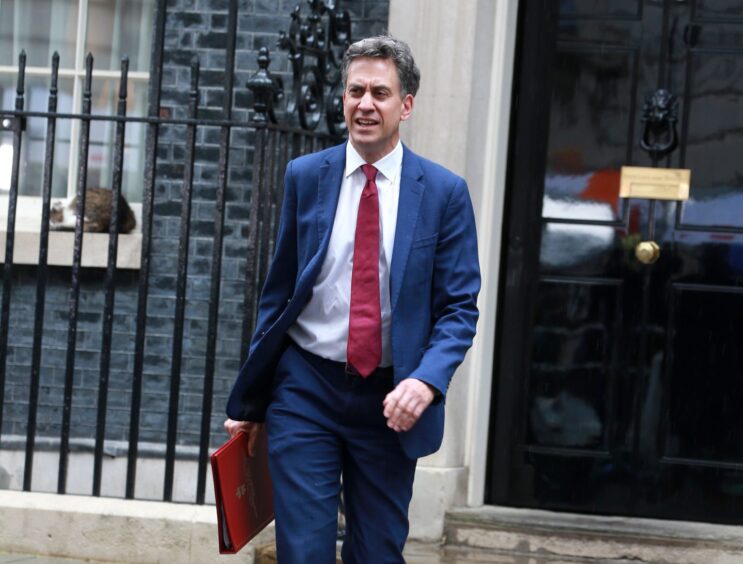
Incoming UK energy secretary Ed Miliband has set out his key priorities in a letter to staff at the Department for Energy Security and Net Zero (DESNZ).
Mr Miliband said DESNZ will be “at the heart” of the new Labour government’s agenda as one of Prime Minister Sir Keir Starmer’s five “national missions”.
“Families and businesses across the country are still struggling with energy bills that are too high and are expected to rise again in the autumn,” Mr Miliband said.
“In an unstable world, the only way to guarantee our energy security and cut bills permanently is to speed up the transition away from fossil fuels and towards homegrown clean energy.”
Mr Miliband listed energy independence, cutting household energy bills, establishing GB Energy and reforming the UK energy system as among his first priorities.
Others include creating jobs in Britain’s industrial heartlands, ensuring a just transition for North Sea workers and upgrading homes and reducing fuel poverty through Labour’s Warm Homes Plan, he said.
Making the UK a leader on international climate action, based on its domestic achievements, will also be a key priority.
Mr Miliband returning to the department, which he led between 2008 and 2010 as Secretary of State for Energy and Climate Change, felt like “coming home”.
“The reason I’m so excited to have been appointed to this role is because it speaks directly to the twin passions that continue to motivate me,” he said.
“First, resolving the economic inequality that scars the country, and second tackling the climate crisis that imperils our world.”
Croydon West MP Sarah Jones will join Mr Miliband as a junior minister across DESNZ and the Department for Business and Trade.
North Sea oil and gas
One of the first tasks facing Mr Miliband will be to assuage the concerns North Sea oil and gas leaders have about Labour’s campaign promises.
Following Labour’s landslide win, trade body Offshore Energies UK said North Sea workers and investors remain “deeply concerned” about pledges to increase the windfall tax, remove investment incentives, and put an end to new oil and gas licensing.
Meanwhile, trade unions and green groups have urged the next government to fund a “just transition” for oil and gas workers.
While the oil and gas sector has expressed concern about Labour’s victory, the incoming government has received a more positive reception from the renewables sector.
RenewableUK chief executive Dan McGrail said Labour’s election win gives it a “clear mandate” to deliver on its clean energy promises, and welcomed a move to rescind the de facto ban on onshore wind in England.
Recommended for you


 © Supplied by X/Ed Miliband
© Supplied by X/Ed Miliband